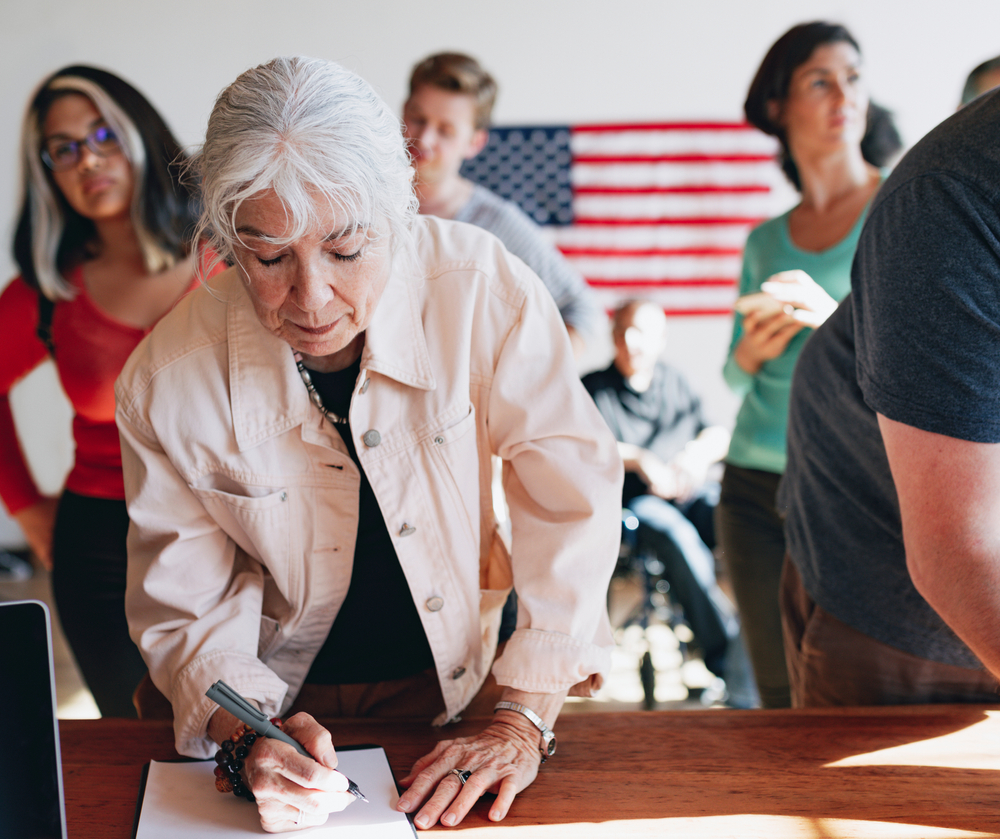
Across the country, older voters are voicing frustration with the political system. Once considered the most reliable voting bloc, seniors now feel abandoned by both major parties. Rising healthcare costs, shrinking retirement benefits, and inadequate policy reforms have left retirees questioning whether anyone in Washington truly represents their interests. The sense of disillusionment is growing, reshaping the political landscape.
When Promises Don’t Match Reality
Both parties routinely promise to protect Social Security and Medicare, yet seniors see little progress. Benefits fail to keep pace with inflation, leaving retirees struggling to cover essentials. Prescription drug prices remain high despite pledges of reform. Seniors hear promises during election cycles, but reality rarely matches rhetoric. The gap between words and action fuels mistrust.
Surveys and polling data reveal just how widespread the frustration has become among older voters. Studies from organizations like Pew Research and AARP show that seniors consistently rank healthcare affordability, Social Security stability, and prescription drug costs as their top concerns.
Yet when asked whether either political party is addressing these issues effectively, large portions of respondents express skepticism or outright dissatisfaction. The numbers highlight that this isn’t just anecdotal—it’s a measurable trend showing older Americans increasingly feel sidelined in the national conversation.
Why Seniors Are a Political Force
Despite feelings of abandonment, seniors remain a powerful political force. They vote at higher rates than younger generations, influencing elections nationwide. Their collective frustration could reshape political priorities if mobilized. Advocacy groups encourage retirees to demand accountability, reminding parties that ignoring seniors comes at a political cost. Seniors may feel abandoned, but they are far from powerless.
Older voters can take proactive steps to reclaim influence. Joining advocacy organizations amplifies their voices. Attending town halls and contacting representatives ensures concerns are heard. Seniors can also leverage community networks to organize collectively. By demanding transparency and accountability, retirees transform frustration into action. These moves empower seniors to remind politicians that their votes still matter.
The Future of Democracy
The abandonment of older voters reflects broader challenges in democracy. Rising polarization leaves little room for compromise, and seniors are caught in the middle. The bigger picture reveals that democracy cannot thrive if its most loyal participants feel ignored. Reform is essential to restore trust and ensure retirees are included in political decision-making.
Trust is the foundation of democracy, but for seniors, it has been eroded. When trust meets politics, awareness becomes essential. Seniors must demand accountability, families must provide support, and policymakers must act. Only then can retirees reclaim faith in the system and ensure their voices are heard.
Do you or a loved one feel ignored by political leaders? Leave a comment below and share your experience.
You May Also Like…
- Unnoticed Infrastructure Bills Saddle Taxpayers With Decades of Debt
- 7 States Where Hidden Taxes Are Squeezing the Middle Class – Is Yours One of Them?
- 8 Conversations That Break Up Long-Term Senior Friendships
- What’s Really Happening to Your Social Security Payments Behind the Scenes?
- Exposed: The Lobbyist Push to Raise The Social Security Eligibility Age Again

Teri Monroe started her career in communications working for local government and nonprofits. Today, she is a freelance finance and lifestyle writer and small business owner. In her spare time, she loves golfing with her husband, taking her dog Milo on long walks, and playing pickleball with friends.






Comments